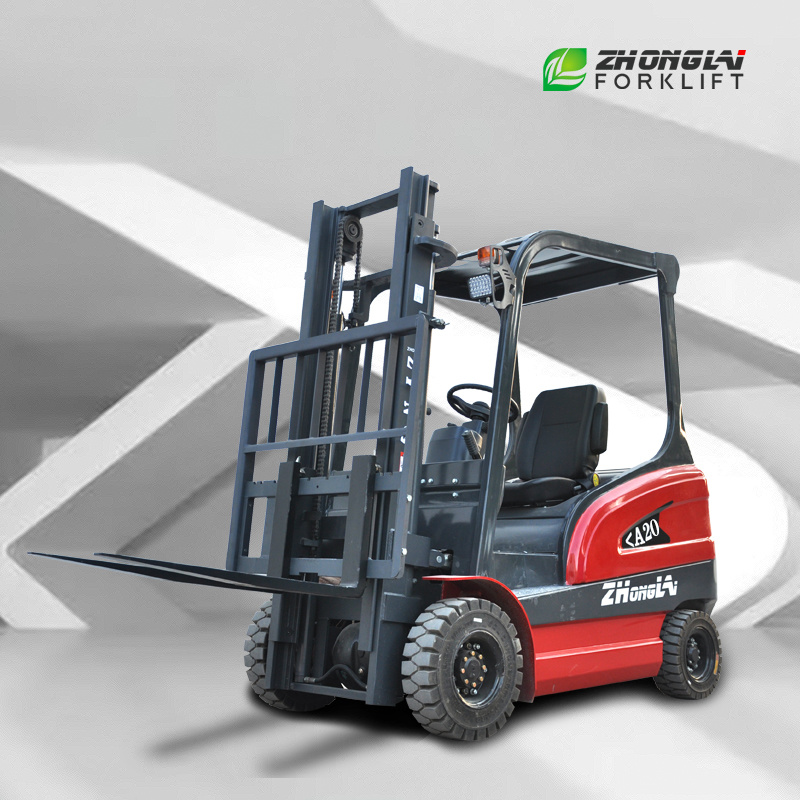Electric Portable Forklift vs. Traditional Forklifts: Which is Right for You?
Jul 02,2025

Electric Portable Forklift vs. Traditional Forklifts: Which is Right for You?
Table of Contents
- 1. Introduction to Forklifts and Their Importance
- 2. Types of Forklifts in the Market
- 3. Understanding Electric Portable Forklifts
- 4. Insights into Traditional Forklifts
- 5. Comparative Analysis: Electric vs. Traditional Forklifts
- 6. Use Cases: When to Choose Each Option
- 7. Frequently Asked Questions
- 8. Conclusion: Making the Right Choice
1. Introduction to Forklifts and Their Importance
In the realm of logistics and warehouse operations, **forklifts** play a pivotal role in enhancing efficiency and productivity. Whether it’s transporting heavy goods, stacking pallets, or maneuvering in tight spaces, the right forklift can make all the difference. As businesses evolve, so do the tools they use, leading to a debate between **electric portable forklifts** and traditional forklifts. This article aims to break down the key differences, benefits, drawbacks, and scenarios to help you determine which option is best suited for your operational needs.
2. Types of Forklifts in the Market
Forklifts come in various types, each designed to meet specific operational needs. The two main categories are **electric** and **internal combustion** forklifts. Electric forklifts are typically powered by batteries, making them a popular choice for indoor and environmentally conscious operations. In contrast, traditional forklifts often run on diesel or propane, making them suitable for outdoor tasks where heavy lifting is required.
3. Understanding Electric Portable Forklifts
Electric portable forklifts are becoming increasingly popular due to their versatility and efficiency. These forklifts are designed to be compact, making them ideal for small spaces and indoor environments.
3.1. Key Benefits of Electric Portable Forklifts
- **Reduced Emissions**: Electric forklifts produce zero emissions, making them ideal for indoor use or in environments where air quality is a concern.
- **Lower Operating Costs**: They are generally more cost-effective in terms of maintenance and energy consumption compared to traditional forklifts.
- **Quieter Operation**: Electric forklifts operate quietly, which can lead to a more pleasant working environment, especially in retail and warehouse settings.
- **Ease of Use**: With fewer moving parts and a simpler design, electric forklifts often require less training for new operators.
3.2. Limitations of Electric Portable Forklifts
- **Battery Life**: While electric forklifts are cost-effective, their operational time is limited by battery life, necessitating regular recharging.
- **Weight Capacity**: Electric portable forklifts may have lower weight capacities compared to traditional options, which could be a concern for heavy-duty tasks.
4. Insights into Traditional Forklifts
Traditional forklifts are often powered by internal combustion engines, such as diesel or propane. They have been the industry standard for many years and are well-suited for various applications.
4.1. Advantages of Traditional Forklifts
- **Higher Weight Capacity**: Traditional forklifts can handle heavier loads, making them suitable for outdoor applications and construction sites.
- **Extended Operational Time**: With fuel tanks that can be quickly refilled, traditional forklifts can operate for longer periods without downtime.
- **Versatility**: Many traditional forklifts are designed to work both indoors and outdoors, offering greater flexibility in different environments.
4.2. Disadvantages of Traditional Forklifts
- **Higher Emissions**: Traditional forklifts produce greenhouse gases, making them less suitable for indoor use and contributing to environmental concerns.
- **Increased Operating Costs**: Fuel costs and maintenance can be higher for traditional forklifts, leading to increased operational expenses over time.
5. Comparative Analysis: Electric vs. Traditional Forklifts
Understanding the key differences between electric portable forklifts and traditional forklifts is essential for making an informed decision.
5.1. Cost-Effectiveness
When evaluating the cost-effectiveness of each type, electric forklifts typically have lower operational costs due to reduced fuel expenses and less frequent maintenance. In contrast, traditional forklifts may incur higher fuel and maintenance costs, especially in high-use environments.
5.2. Environmental Impact
Electric forklifts are environmentally friendly, producing no emissions and contributing to cleaner indoor air quality. Traditional forklifts, however, contribute to pollution and are less suitable for enclosed spaces.
5.3. Efficiency and Performance
Electric forklifts excel in environments requiring quiet, indoor operations, while traditional forklifts perform better in outdoor scenarios where heavy lifting is necessary. The choice depends on the specific operational needs of your business.
6. Use Cases: When to Choose Each Option
- **Electric Portable Forklifts**: Best suited for indoor warehouses, retail environments, and settings where air quality and noise levels are a priority.
- **Traditional Forklifts**: Ideal for construction sites, outdoor applications, and instances requiring heavy lifting capabilities.
7. Frequently Asked Questions
**Q1: How long does the battery last in an electric forklift?**
A1: Battery life can vary, but many electric forklifts can operate for 6 to 8 hours on a full charge, depending on the load and usage conditions.
**Q2: Are electric forklifts suitable for outdoor use?**
A2: While electric forklifts can be used outdoors, their performance may be limited in wet or rugged conditions. They are primarily designed for indoor use.
**Q3: What maintenance do traditional forklifts require?**
A3: Traditional forklifts require regular maintenance, including oil changes, filter replacements, and inspections of the fuel system.
**Q4: Can I convert a traditional forklift to electric?**
A4: Conversion from traditional to electric is possible but can be costly and complex. It's often more practical to purchase a new electric forklift.
**Q5: What factors should I consider when purchasing a forklift?**
A5: Consider factors such as the intended use environment, weight capacity, operational costs, and your company's sustainability goals.
8. Conclusion: Making the Right Choice
Choosing between an **electric portable forklift** and a **traditional forklift** ultimately depends on your specific operational needs, budget, and environmental considerations. Electric portable forklifts offer significant advantages in indoor settings, focusing on efficiency and low emissions. Conversely, traditional forklifts deliver robust performance for heavy-duty applications, especially outdoors. By assessing the unique requirements of your operations, you can make an informed decision that aligns with both your operational goals and sustainability objectives.
PREVIOUS:
Contact Us


